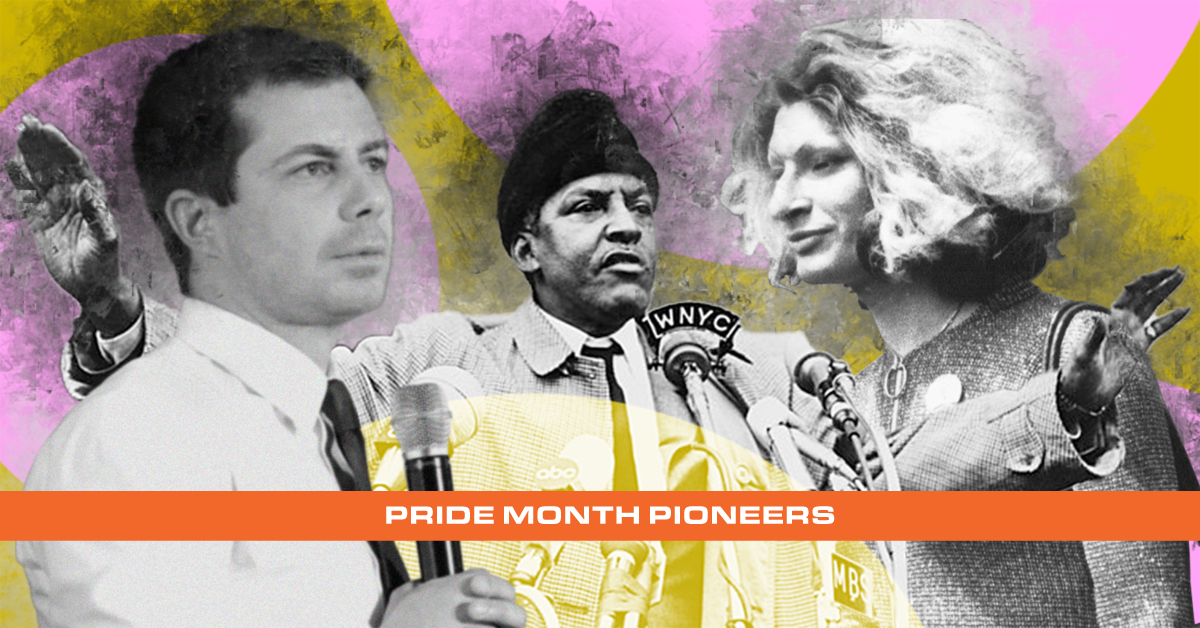In the vast timeline of history, certain figures stand out for their courageous advocacy and steady commitment to equality. Among them are LGBTQ+ individuals whose contributions have not only shaped social justice movements but also influenced industries across the board. While the railroad and transportation industry may not immediately come to mind in discussions of LGBTQ+ pioneers, the impact of these advocates resonates through changes of power, progress, and the fight for equality. The accounts of Bayard Rustin, Sylvia Rivera, and Pete Buttigieg highlight their fight for social justice in the United States.
Bayard Rustin: Pioneer of Transformation
Born on March 17, 1912, Bayard Rustin was an American leader in social movements for civil rights, socialism, and gay rights. While his direct involvement in transportation may not be widely acknowledged, Rustin’s advocacy for civil rights encompassed one impacting campaign, the Freedom Rides of 1961. Rustin and the Congress of Racial Equality (CORE) organized and led the campaign. It became the most well-known campaign to challenge segregation on transportation systems throughout the South. As a result, more people began to take a stand and join the fight for civil rights and desegregation. One of his notable achievements was his role in organizing the 1963 March on Washington which brought thousands of people to Washington, D.C. and sparked discussions on desegregation across all businesses including public transit systems. Through his bravery and leadership, Rustin not only advanced the cause of racial justice but also paved the way for a more inclusive transportation system. (Link 1)
Sylvia Rivera: Hero of Marginalized Voices
Born on July 2, 1951, Sylvia Rivera was an American gay liberation and transgender rights activist. As a transgender activist and drag queen, her advocacy spanned issues of poverty, homelessness, and discrimination, all of which intersect with transportation access and equity. While her work may not have been directly involved in the transportation industry, her efforts to amplify marginalized voices resonated with broader social justice movements. After her death in 2002, The Sylvia Rivera Law Project (SRLP) was founded. This organization assists people who are gay, trans, and gender-fluid to legal services, as well as allowing them the opportunity to advocate furthermore. By challenging systematic injustices, Rivera’s legacy continues to inspire advocacy for policies that prioritize the needs of all individuals, regardless of gender identity or socioeconomic status. (Link 1) (Link 2) (Link 3)
Pete Buttigieg: Breaking Barriers in Government
The appointment of Pete Buttigieg as secretary of Transportation under the Biden administration marked a historic milestone for LGBTQ+ representation in government. His leadership brings a new vision and a fresh perspective to the corridors of power. As an openly gay man, Buttigieg’s tenure signifies progress towards greater diversity and inclusion in positions of influence. While his impact on transportation policies is yet to fully unfold, Buttigieg’s appointment signals a commitment to addressing the needs of LGBTQ+ individuals within the realm of transportation infrastructure and beyond. (Link 1)
LGBTQ+ advocates have woven threads of strength, courage, and hope. From Bayard Rustin’s strategic brilliance to Sylvia Rivera’s steady commitment to marginalized communities and Pete Buttigieg’s leadership, their contributions have left a notable mark on the landscape of equality in transportation and beyond. Their legacy serves as a beacon of inspiration, reminding people of the enduring power of perseverance and solidarity in the ongoing fight for justice and acceptance for all.
